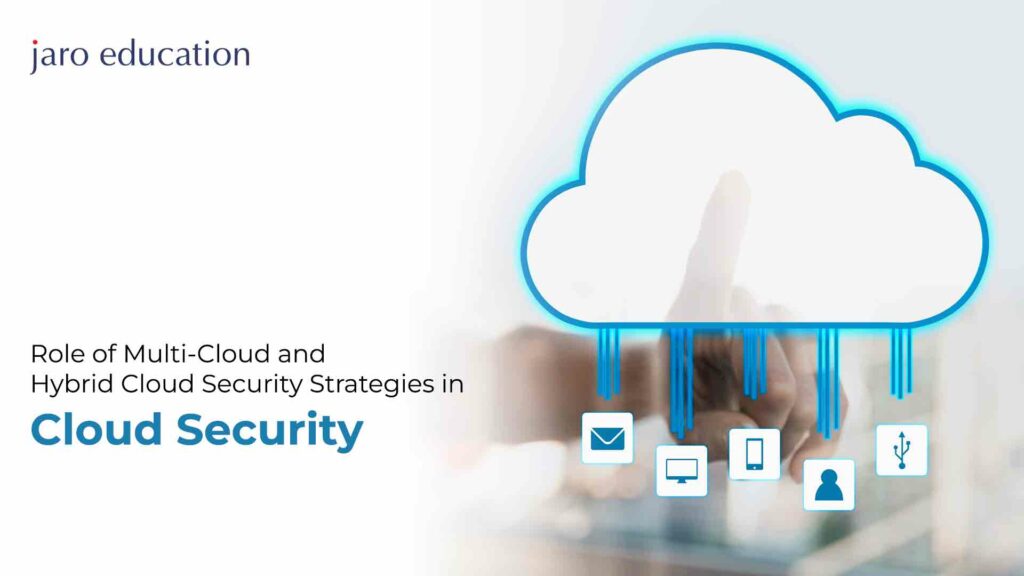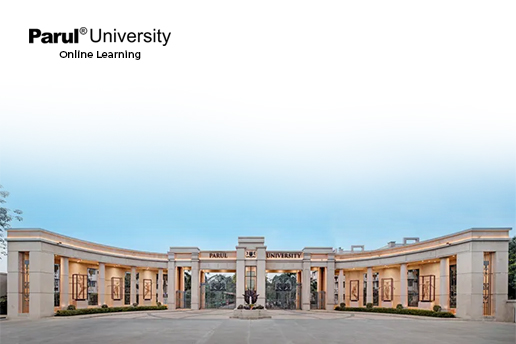Strong cloud security solutions are more important than ever as businesses increasingly utilise cloud computing. To secure data confidentiality, integrity, and availability, new security issues must be addressed by multi-cloud and hybrid-cloud settings.
In this blog, we will explore the role of multi-cloud and hybrid cloud security strategies in cloud security and how they can help organisations secure their data in a complex cloud environment. Moreover, we will discuss cyber security certifications that will enhance your cyber security career.
What is Hybrid Cloud Security and Its Role?
Protecting data and systems that are located in both on-site data centers and the cloud is known as hybrid cloud security. A hybrid cloud is a computer system that combines private on-premises cloud resources with public cloud resources provided by third parties, orchestrating the two platforms.
Utilising the scalability and cost-savings of public cloud services while maintaining control over sensitive data and apps is one of the key benefits of a hybrid cloud. However, because data and applications are dispersed across several settings, this could also pose security concerns.
To ensure the security of a hybrid cloud environment, there are various key considerations:
1. Data security:
In a hybrid cloud environment, protecting sensitive data in transit and at rest is crucial. This includes access controls, encryption, and ensuring data is stored according to industry standards.
2. Network security:
It is critical to secure the network that links on-premises data centers and cloud environments. This involves utilising secure protocols, firewalls, and virtual private networks (VPNs) to avoid unwanted access.
3. Identity and access management:
Securing a hybrid cloud system requires ensuring that users and apps have access to information and resources properly. Multi-factor authentication, role-based access constraints, and regular user activity monitoring must be used.
4. Compliance and audit:
To protect sensitive data and uphold the organisation’s reputation, it is crucial to make sure the hybrid cloud environment complies with all applicable laws and standards, such as the General Data Protection Regulation (GDPR) or the Payment Card Industry Data Security Standard (PCI DSS).
5. Continuous monitoring:
Cloud security must be continuously monitored for threats and vulnerabilities in the hybrid cloud environment. This entails keeping an eye on network activity, doing routine security audits, and utilising tools like security information and event management (SIEM) systems to spot and address any threats.
What is Multi-Cloud Security and Its Role?
The term “multi-cloud security” refers to a group of procedures and tools used to protect infrastructure, software, and data in various cloud computing environments. This comprises both private and public clouds and hybrid clouds, which are made up of both types of clouds.
To suit their needs for various services and applications, enterprises are increasingly adopting several cloud providers as more adopt cloud computing. While this method can provide numerous advantages, like increased flexibility and scalability, it also introduces new security issues.
Making sure that sensitive data is protected from theft or unauthorised access is one of the main concerns with multi-cloud security. This may entail putting encryption and access control mechanisms in place, as well as keeping an eye out for any security lapses and rapidly responding to any events.
Multi-cloud security encompasses not just data security but also safeguarding the infrastructure and applications that are hosted in the cloud. This involves guarding against malware, hacking, and other threats to servers, storage systems, and other resources housed in the cloud.
Organisations often employ a combination of security rules and tools to accomplish effective multi-cloud security. Firewalls, IDP systems, threat intelligence platforms, and security information and event management (SIEM) systems are a few examples. They could also collaborate with outside security service providers to manage and monitor their cloud infrastructures.
Overall, maintaining multi-cloud security is a difficult and continuing process that calls for careful planning, continual observation, and routine updates to stay ahead of new threats and vulnerabilities. Organisations may aid in ensuring that their multi-cloud environments are secured against a variety of security issues by adopting a proactive approach to security.
Difference Between Hybrid and Multi-Cloud Security
Following are the difference between hybrid cloud and multi-cloud security–
Complexity:
A multi-cloud environment can be easier to manage because it uses a standardised set of tools and procedures across various cloud providers, whereas a hybrid cloud environment is typically thought to be more complex than a multi-cloud environment because it involves integrating various infrastructure components from different providers.
Security Focus:
While multi-cloud security concentrates on managing security across various cloud providers, hybrid cloud security is mainly concerned with protecting the links between on-premises and cloud-based resources.
Data Protection:
Sensitive data can be kept on-site or in a private cloud in a hybrid cloud system, while less-sensitive data can be kept on a public cloud. Data might be dispersed across several public clouds in a multi-cloud system, making management and security more challenging.
Compliance:
Organizations with stringent compliance standards may find that a hybrid cloud system is more suited to them because it enables them to maintain sensitive data on-premises or in a private cloud. Because data is dispersed over several public clouds in a multi-cloud environment, compliance may be harder to achieve.
Cloud Provider:
Organizations can easily switch between various cloud providers in a multi-cloud environment to avoid vendor lock-in. However, a hybrid cloud architecture may be more prone to vendor lock-in due to the complicated integrations needed.
Final Words
Adopting hybrid and multi-cloud security will protect sensitive data and serve efficiently for businesses to operate. If you are pursuing cyber security, IIT Guwahati will provide an excellent opportunity for you to learn the best practical knowledge and improve your cyber security career.






1 thought on “Role of Multi-Cloud and Hybrid Cloud Security Strategies in Cloud Security”
Visit us Magister Akuntansi
What’s a file system repair?